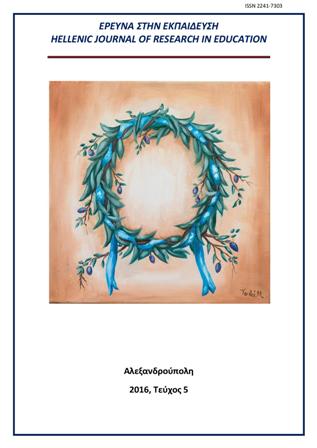«Γρήγορη συμπτωματική μάθηση» και παγίωση νέων λέξεων μέσω της αφήγησης ιστοριών σε παιδιά πρώτης σχολικής ηλικίας

Περίληψη
H παρούσα μελέτη διερευνά τις συνθήκες κάτω από τις οποίες η αφήγηση ιστοριών στην τάξη μπορεί να αποτελέσει αποτελεσματική δραστηριότητα εμπλουτισμού του λεξιλογίου σε παιδιά πρώτης σχολικής ηλικίας. Πιο συγκεκριμένα, η έρευνα εξετάζει τη «Γρήγορη Συμπτωματική Μάθηση» νέων λέξεων, μετρώντας τις επιδόσεις 96 μαθητών Α, Β και Γ Δημοτικού στη χαρτογράφηση του νοήματος τεσσάρων ψευδολέξεων μετά από μία μόνο έκθεση σε αυτές στα πλαίσια ενός αφηγήματος. Επίσης, εξετάζει την συγκράτησή τους στη μνήμη μετά από τρεις εβδομάδες χωρίς τη μεσολάβηση κάποιας παρέμβασης/υπενθύμισης, καθώς και την αποτελεσματικότητα τριών διαφορετικών παρεμβάσεων (επαναφήγηση της ίδιας ιστορίας, αφήγηση μίας διαφορετικής ιστορίας με τις ίδιες ψευδολέξεις, και συνδυασμός των ανωτέρω) στην παγίωση των ψευδολέξεων. Τα αποτελέσματα δείχνουν αναπτυξιακές διαφορές στις επιδόσεις των παιδιών στη δοκιμασία γρήγορης συμπτωματικής μάθησης των ψευδολέξεων ανά τάξη, καθώς και ποιοτικές διαφορές στη χαρτογράφηση των διαφορετικών ψευδολέξεων. Επίσης, καταδεικνύουν βέλτιστη παγίωση των λέξεων στα παιδιά που παρακολούθησαν όλες τις παρεμβάσεις, ακολουθούμενα από τα παιδιά που παρακολούθησαν την ίδια ιστορία δύο φορές. Στα παιδιά που παρακολούθησαν δύο διαφορετικές ιστορίες όπως και σε αυτά που δεν έλαβαν καμία παρέμβαση καταγράφηκε, σε μικρότερο ή μεγαλύτερο βαθμό αντίστοιχα, λήθη των ψευδολέξεων.
Λεπτομέρειες άρθρου
- Πώς να δημιουργήσετε Αναφορές
-
Καρούσου (Karousou) Α. (Alexandra), Κουτσιούκη (Koutsiouki) Μ. (Manto), & Τριανταφυλλίδου (Triantafyllidou) Ά. (Antissa). (2016). «Γρήγορη συμπτωματική μάθηση» και παγίωση νέων λέξεων μέσω της αφήγησης ιστοριών σε παιδιά πρώτης σχολικής ηλικίας. Έρευνα στην Εκπαίδευση, 5(1), 1–16. https://doi.org/10.12681/hjre.9055
- Τεύχος
- Τόμ. 5 Αρ. 1 (2016)
- Ενότητα
- Άρθρα

Αυτή η εργασία είναι αδειοδοτημένη υπό το CC Αναφορά Δημιουργού – Μη Εμπορική Χρήση – Παρόμοια Διανομή 4.0.
Τα πνευματικά δικαιώματα των άρθρων του περιοδικού ανήκουν στους συγγραφείς. Τα άρθρα διατίθενται με άδειες Creative Commons CC-BC-SA 4.0


